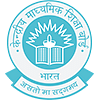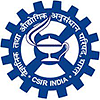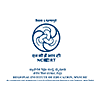D.Ed Syllabus and Subjects: Specialisations, Books, Course Details

The Diploma in Education (D.Ed) course is divided into four semesters. It covers educational Psychology, Physical Education, Art, Literature, Children's Physical and Emotional Health, Information & Communication Technology, etc. The D.Ed job scope offers good employment opportunities for students looking for employment in the field of education.
The primary motive of the D.Ed syllabus and subjects is to provide a strong understanding of the teaching profession and its principles. Some of the topics that it entails are children's growth and development, the psychology of education and ways of teaching, basic rules of education, mathematics, studies about our surroundings and our environment, and more. Apart from the theoretical concepts, students are also given hands-on experience of their practical application. It includes observing live classes, internships in educational institutions, and more.
While the eligibility criteria for admission into the D.Ed course differ depending on the institution, students must have obtained a minimum of 50%-60% marks in class 12 from a recognised educational institution. The average fees of the course range from INR 12,000 to INR 1,20,000.
D.Ed Syllabus and Subjects Highlights
Before moving on to the list of subjects, tabulated are the important highlights about the D.Ed (Diploma in Education) course.
| Particulars | Details |
| Name of the Programme |
Diploma in Education (D.Ed)
|
| Duration |
2 Years
|
| Number of Semesters | 4 |
| Subjects per Semester |
5 to 7 subjects per semester (depends on the institution)
|
| Eligibility |
10+2 with a minimum specified percentage
(generally between 45% - 50%) |
| Objective |
For primary teaching roles
|
| D.Ed Syllabus Structure |
Divided into theoretical coursework and practical teaching experience
|
| Teaching Practice |
Includes classroom observations, micro-teaching sessions, and full-time
teaching practice in schools |
| D.Ed Assessment Methods |
A combination of written exams, practical exams, assignments, and continuous
assessment |
| D.Ed Internship |
Observing live classes and teaching in educational institutions for hands-on experience.
|
| Pedagogical Tools |
Emphasis on modern teaching techniques, use of technology, and interactive teaching methods
|
| Educational Philosophy |
Exposure to various educational philosophies and their practical
implications |
| D.Ed Specialization |
Some programs may offer specialisations in areas like special education, early childhood education, etc.
|
| Practical Skills |
Focus on developing effective communication skills, classroom management, and assessment strategies
|
Year-Wise D.Ed Syllabus Topics
The D.Ed course consists of core and elective subjects, and depending on the university/college, they may differ slightly. It has two parts: a compulsory set of courses covering all foundation areas in literature and a set of elective courses that aim at building job-specific skills and knowledge. The D.Ed course aims to ensure that the students have a chance to learn about all the vital topics. The semester-wise courses are as follows.
D.Ed First Year Semester-Wise Syllabus 2025
Tabulated below is the D.Ed semester-wise syllabus 2025 for the students currently pursuing the D.Ed first year.
| D.Ed Semester 1 Subjects | |
| Education in Emerging Indian Society | Educational Psychology |
| Secondary Education: Issues & Problems | Information & Communication Technology |
| Methods of Teaching I | Methods of Teaching II |
| Subject Specialization | - |
| D.Ed Semester 2 Subjects | |
| Microteaching: 7 Skills, 3 lessons per Skill | The Teaching of Subject I - 20 lessons |
| The Teaching of Subject II - 20 Lessons | Criticism Lessons (Two - One in each method of teaching the subject) |
| The Final Lesson in the Methods of Teaching Major Subject | Work Experience : (Anyone Craft) |
| Working with Community & Social Service | Five Psychology Experiments |
D.Ed Second Year Semester-Wise Syllabus 2025
Tabulated below is the D.Ed semester-wise syllabus 2025 for the students currently pursuing the D.Ed second year.
| D.Ed Semester 3 Subjects | |
| Contemporary Issues in Education | Educational Technology and ICT in Teaching |
| Assessment for Learning | Understanding the Learner - Assessment and Remediation |
| D.Ed Semester 4 Subjects | |
| Internship (Full-time Teaching Practice in Schools) | Action Research in Education |
| Inclusive Education | School Management and Leadership |
D.Ed Subjects
The D.Ed subjects taught in the course are mostly similar for all the colleges, but they vary depending on the institution's course module. But the overall subjects are quite similar, but put in a different order, depending on the teaching method. The course overall makes them have a peculiar way of nursing, childcare, and health. There are both core and elective subjects that are part of the syllabus.
Core Subjects:
- Educational Psychology
- Secondary Education: Issues & Problems
- Child Development and Learning
- English Language Teaching
- Pedagogy of Environmental Studies
- Creative Drama, Fine Arts and Education (Practical)
Elective Subjects:
- Education Society
- Mathematics Education for the Primary
- Leadership and Change
- Fine Arts and Education
- Diversity and Education
D.Ed Course Structure
The D.Ed course syllabus is designed to include Education in Emerging Indian Society, mainly Educational Psychology, Secondary Education: Issues and Problems, Information and Communication Technology, Methods of Teaching, and elective subjects, which overall gives the knowledge to work in the job sectors. This field sharpens a student's mind to tackle the daily obstacles faced in their workplace, studies & other similar aspects. The course involves subjects which include aspects like
- Literary Theory
- Core Subjects
- Elective Subjects
- Practical
D.Ed Teaching Methodology and Techniques
D.Ed is a course focusing on different aspects of paediatrics, nutrition and childcare, and treatment. The course is designed based on requirements and helps get the most exposure to the field, and the D.Ed course subjects deal with the same. Learning strategies have varying implications for courses.
- Assignments
- Following Course Module Books
- Case Studies/ Research Work
- Internships
D.Ed Projects
D.Ed projects, which are known as mini-theses, are a compulsory project for students to complete at the end of their semesters. As such, students should regard their projects as an ideal opportunity for integrating what they have learned during their D.Ed course. This is also an opportunity to apply their knowledge to their future work and profession. Some of the project topics are:
- Problems Of Teaching Social Studies In Secondary Schools
- Problems Encountered By Student Teachers During Teaching Practice Exercise
- Use Of Instructional Material And Its Effects On The Academic Achievement Of Students
- The Effect Of Internal Conflicts Among Teachers And Principals On Teaching And Learning In Secondary Schools
- Study Of Some Problems Associated With The Education Of The Handicapped Students
Syllabus for Distance Programme in D.Ed
While the syllabus for D.Ed distance programme can differ depending on the institution, tabulated is a general list that contains the topics covered in a distance Diploma in Education course.
| Semester | Subjects |
| Semester I |
Childhood and the Development of Children
|
|
Educational Psychology and Pedagogy
|
|
|
Principles of Education
|
|
|
Methodology of Teaching Mother Tongue (Language)
|
|
| Semester II |
Methodology of Teaching Mathematics
|
|
Methodology of Teaching Environmental Studies
|
|
|
Art and Craft Education
|
|
|
Health and Physical Education
|
|
| Semester III |
Contemporary Issues in Education
|
|
Educational Technology and ICT in Teaching
|
|
|
Assessment for Learning
|
|
|
Understanding the Learner - Assessment and Remediation
|
|
| Semester IV |
Internship (Full-time teaching practice in schools)
|
D.Ed University-wise Syllabus Comparison
While the topics covered in D.Ed remain similar for almost all the institutions, despite the college one chooses to pursue it, some topics might vary depending on the educational institution. The tables below contain a university-wise syllabus comparison for easier reference.
Amity University D.Ed Syllabus
The syllabus for the D.Ed course at Amity University, Noida, is divided into several topics, ranging from basic concepts of education to outdoor activity-based courses. Students can check the semester-wise syllabus for the Amity University in the tables below.
First Year Syllabus
Tabulated below is the semester-wise D.Ed syllabus first year at Amity University, Noida.
| D.Ed Semester 1 | |
| Basic Concepts of Education | Child Development |
| School Experience for Elementary Teachers- I | Technology and Quality in Education |
| Communication Skills for Career Development | Foreign Business Language |
| Open Elective Courses | Outdoor Activity-Based Courses |
| D.Ed Semester 2 | |
| Pedagogy of Hindi- I | Pedagogy of Mathematics - I |
| Sanskrit Sikshan | Data Analytics I |
| Classroom Management | Cognition and Learning |
| Health and Well-being | School Experience for Elementary Teachers- II |
| Behavioural Skills for Personal & Professional Excellence | Foreign Business Language |
| Open Elective Courses | Outdoor Activity-Based Courses |
Second Year Syllabus
Tabulated below is the semester-wise D.Ed syllabus second year at Amity University, Noida.
| D.Ed Semester 3 | |
| Community Work | Education in Contemporary India |
| Performing and Fine Arts in Education - I | Physical Education in ETE |
| School Experience for Elementary Teachers- III | Foreign Business Language |
| Open Elective Courses | Outdoor Activity-Based Courses |
| D.Ed Semester 4 | |
| Pedagogy of English - II | Pedagogy of Science - II |
| Pedagogy of Social Science - II | Disruptive Technologies and Education |
| Children with Special Needs | Gender Perspectives In Education |
| Guidance and Counselling for Elementary Teachers | School Experience for Elementary Teachers - IV |
| Foreign Business Language | Open Elective Courses |
| Outdoor Activity-Based Courses | - |
DSERT, Karnataka, D.Ed Syllabus
The syllabus for the D.Ed course at DSERT, Karnataka, is divided into several topics, ranging from basic concepts of education to outdoor activity-based courses. Students can check the year-wise syllabus for the DSERT, Karnataka, in the tables below.
| D.Ed First Year Syllabus | |
| Education: Introduction to Basic Concepts |
Facilitating Learning (LPS) |
| Kannada First Language | Mathematics |
| EVS | Communication Skills in English |
| Educational Assessment and Evaluation | Teacher Development Studies |
| Arts in Education | Reflective Practices |
| Physical Education and Games | Practice in Teaching and Internship |
| D.Ed Second Year Syllabus | |
| Education as Practice | Facilitating Learning (HPS) |
| Kannada First Language | English |
| Optional (Any one) | Science |
| Mathematics | Social Science |
| Health and Physical Education | Teacher Development Studies |
| ICT Mediation | Education for Peace |
| Work and Education | Action Research |
| Practice in Teaching and Internship | - |
Career Scopes After D.Ed
The D.Ed course offers several career choices in the field of education. Students can check some of the potential job roles for this course tabulated below.
| Potential Role | Average Annual Salary (In India) |
| Primary School Teacher | INR 2,80,000 - INR 4,80,000 |
| Early Childhood Educator | INR 3,00,000 - INR 7,00,000 |
| Teaching Assistant | INR 1,00,000 - INR 7,00,000 |
| Curriculum Developer | INR 5,35,000 - INR 5,85,000 |
| Educational Consultant | INR 4,00,000 - INR 7,00,000 |
| Preschool Teacher | INR 2,40,000 - INR 18,00,000 |
| Special Education Teacher | INR 1,00,000 - INR 7,02,000 |
| School Administrator | INR 2,80,000 - INR 9,80,000 |
| Education Coordinator | INR 5,40,000 - INR 9,90,000 |
| NGO Worker in Education | INR 70,000 - INR 5,00,000 |
D.Ed Reference Books
The D.Ed course is the one meant for the specialisation in the field of teaching. The topics taught in the course module are very much enough. But, to get a deep or in-depth knowledge, there are certain books published by the authors, who have opened up about their thought process, and thus help in being more skilled and knowledgeable about nutrition and health, which are a major part of the D.Ed Subjects.
| Name | Author |
| Human Development | Asha Singh |
| Psychological Foundations of Education | W. N. Dandekar |
| Advanced Educational Psychology | S. Dandapani |
| Child Development | Laura E. Berk |
Top D.Ed [Diploma Education] Colleges
Top Education Entrance Exams
D.Ed Fee Structure
FAQs on D.Ed Syllabus and Subjects
Q: What is the difference between BEd and DEd?
The BEd is an undergraduate programme, whereas DEd refers to a Diploma in Education. While some parts of the syllabus arethe same, the overall structure differs from each other.
Q: Who is eligible for DEd ?
Students must have completed their higher secondary education (10+2) from a recognised educational institution. Additionally, they must have obtained a minimum number of marks specified by the institution they are seeking admission in.
Q: What is the importance of DEd?
Students willing to pursue their career in primary-level teaching can opt for the D.Ed course. It helps students gain a thorough understanding of the teaching domain and its principles.
Q: What is D.Ed full form?
D.Ed is an abbreviation of Diploma in Education.
Q: What are the subjects covered in D.Ed syllabus and subjects?
Some of the topics that it entails ar children's growth and development, the psychology of education and ways of teaching, basic rules of education, mathematics, studies about our surroundings and our environment, and more. Students can check the complete list of subjects in the article above.














